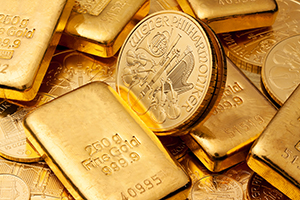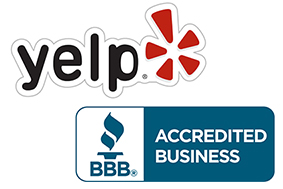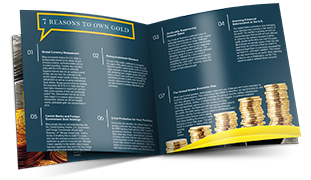 There are two types of people who buy gold and silver: collectors and investors. While collectors are generally one-directional, buying to collect and hold on, investors are clearly going a different direction, buying to then sell at a profit. For investors, there are a few things to watch out for to make sure you are selling gold and silver safely. Avoid scams, be careful about which sellers to work with competitively, and learn the types of buyers most likely to be available.
There are two types of people who buy gold and silver: collectors and investors. While collectors are generally one-directional, buying to collect and hold on, investors are clearly going a different direction, buying to then sell at a profit. For investors, there are a few things to watch out for to make sure you are selling gold and silver safely. Avoid scams, be careful about which sellers to work with competitively, and learn the types of buyers most likely to be available.
Gold Weight Discrepancies
When selling coins and bullion in either gold or silver, it’s important to first do one’s homework and know the weight of the metals involved. In some cases, this can be particularly easy; the government has printed the exact weight on the coin itself for clarity. However, one may find that to sell gold and silver coins some homework may be necessary. Coin values and standard gold prices can often be found in coin guides and spot market pricing reports. All of these give a seller a good grounding of what a particular item may be worth, but that doesn’t guarantee that’s what it will sell for.
Common scams can involve aggressive arguing thinking the buyer is desperate to sell coins, as well as using faulty scales. Knowing the weight and value ahead of time identifies a faulty scale weighing right away, and refusing to be pressured avoids hard buying tactics. At the end of the day the seller controls the deal, not the buyer. Remember that rule.
Coin Buyers From Out Of Town
It’s often the case that an out of town buyer shows up, offering to buy gold and silver coins and bullion with fair pricing. This is often just a marketing call. Many of these gold buyers appear at traveling coin shows or set up shop temporarily with mobile offices.
Recently, a third approach has been “gold parties” where the buyer with the help of a local stages a party in a home. It becomes an easy place to sell gold. The items are “weighed” and “tested for quality” and then a cash price is offered on the spot. Very few refuse and the host gets a small percentage, so it seems like a win-win situation. In fact, such buyers often purchase private items for far less than they are actually worth. By the time the seller figures out what happened, the out of town buyer is literally out of town, never to be seen again.
Whenever looking for where to sell gold or silver, be very wary of out of town buyers. Not all are bad, but again doing one’s homework is critical to avoid being taken for a ride.
Shipping Without Guarantee
The Internet and online auctions provide an easy venue to sell gold and sell silver digitally, and then the items get shipped to buyers across the country and internationally. In fact, there are entire markets of private sales going on every day to sell gold and silver coins.
- The first rule in digital sales is to always get paid first before shipping, no exception. To sell gold and silver coins means to actually get paid when releasing ownership. The buyer should always assume the risk, not a seller.
- Second, never accept personal checks as a form of payment. They are notorious for bouncing. Instead, take cash, money orders, and guaranteed digital payments through processors like PayPal or Western Union. The payment should be “guaranteed” because a non-validated digital payer can use a chargeback to scam a payment, paying up front and then telling the processor it was a mistake or a fraud charge. The seller then ends up losing the digital payment as well as the coin, which has now been shipped.
- Third, when shipping, always use insurance and tracking. These are critical to 1) prove the item was sent where directed, and 2) it is a form of third party recovery if the item does indeed get lost in transit.
Bad Reviews
 When dealing with a coin buyer to sell gold and silver coins, it’s a good idea to see what kind of reviews exist about that company before finalizing a transaction. Many want to work fast, using private sales as their supply for inventory. Still others hope that private sellers are too ignorant about the market to know when they are being scammed. Yet again, the Internet can be a valuable tool in this regard. Sites like Yelp or a local Better Business Bureau log complaints about particular businesses all the time. If a given seller has too many or a number of serious issues to sell coins to, avoid them. Even if a sale sounds imminent, it probably won’t follow through if a commercial buyer has a long history of problems.
When dealing with a coin buyer to sell gold and silver coins, it’s a good idea to see what kind of reviews exist about that company before finalizing a transaction. Many want to work fast, using private sales as their supply for inventory. Still others hope that private sellers are too ignorant about the market to know when they are being scammed. Yet again, the Internet can be a valuable tool in this regard. Sites like Yelp or a local Better Business Bureau log complaints about particular businesses all the time. If a given seller has too many or a number of serious issues to sell coins to, avoid them. Even if a sale sounds imminent, it probably won’t follow through if a commercial buyer has a long history of problems.
No Transparency
Good gold buyers have no issue with sellers who want to take their time, checking out information as well as the buyer’s reputation and payment processing. When a seller finds himself dealing with a buyer who doesn’t want to say much, a red flag should go up. Again, the allure of a quick sale can be very attractive, but it’s not done until the payment is secured at the right price. Many unscrupulous gold buyers avoid discussing their business and instead use hard pressure tactics and threats to walk away or tell people a buyer’s item is fake to force a sale. The seller then gets desperate and is hooked.
The best place to sell gold coins is often with reputable gold dealers that have been established in the community and have an interest in keeping their business going. They will be honest if they have too much of a given inventory and don’t want to spend much on an item right now. They will also suggest resources to help you find out where to sell gold and where to sell silver that they won’t buy.
👉 Related Read: How to Sell a Coin Collection: 4 Expert Tips
Conclusion
There is no special protection for sellers of gold and silver coins and bullion. The seller has to watch out for his or her own interest. That means doing homework, not taking the first offer, and confirming payment processes before shipping. Finally, smart sellers anticipate problems and cover themselves with documentation and insurance. After all, it is a free market.


